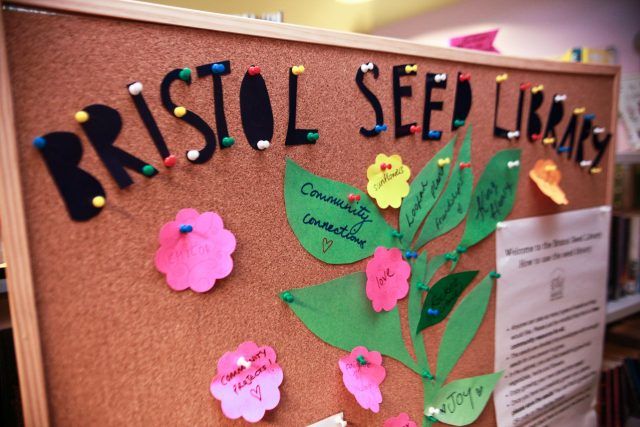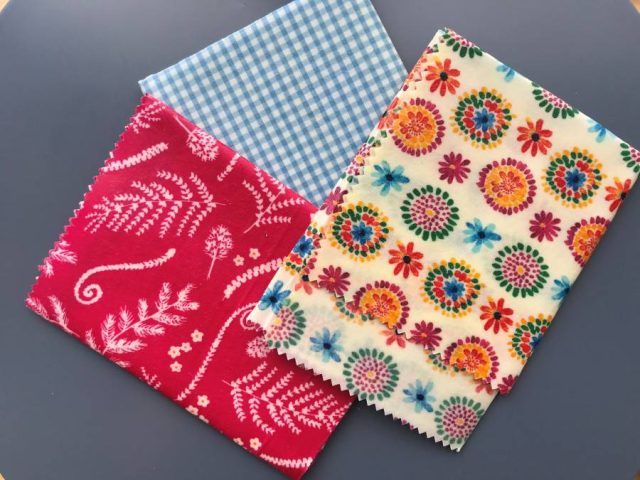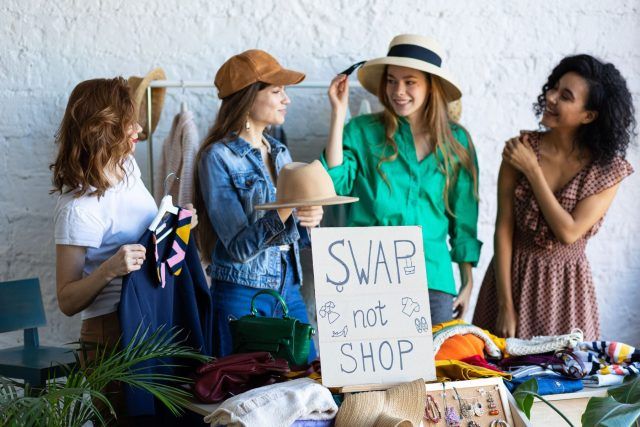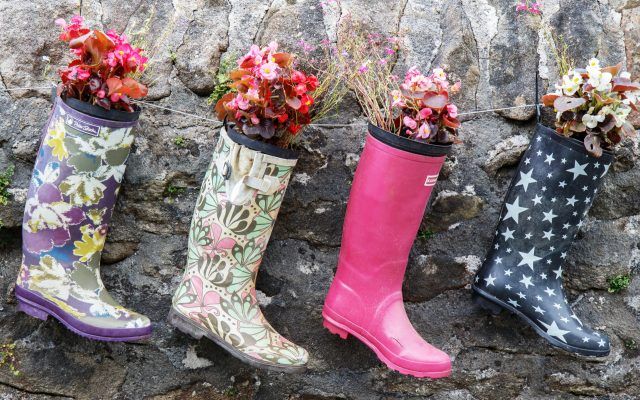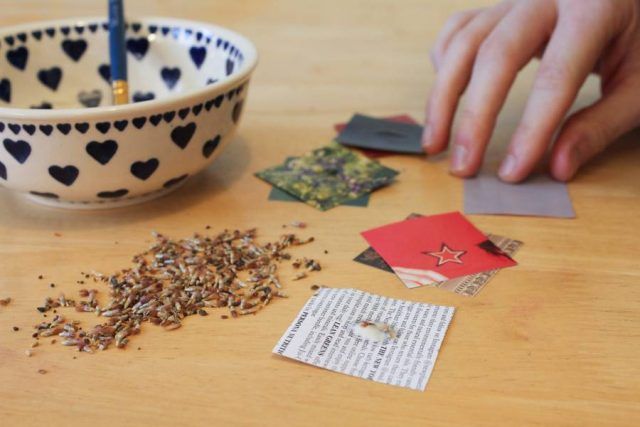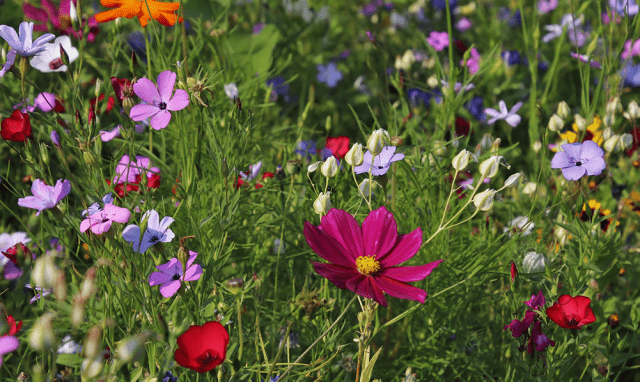52 sustainable little swaps
Little changes can make all the difference.
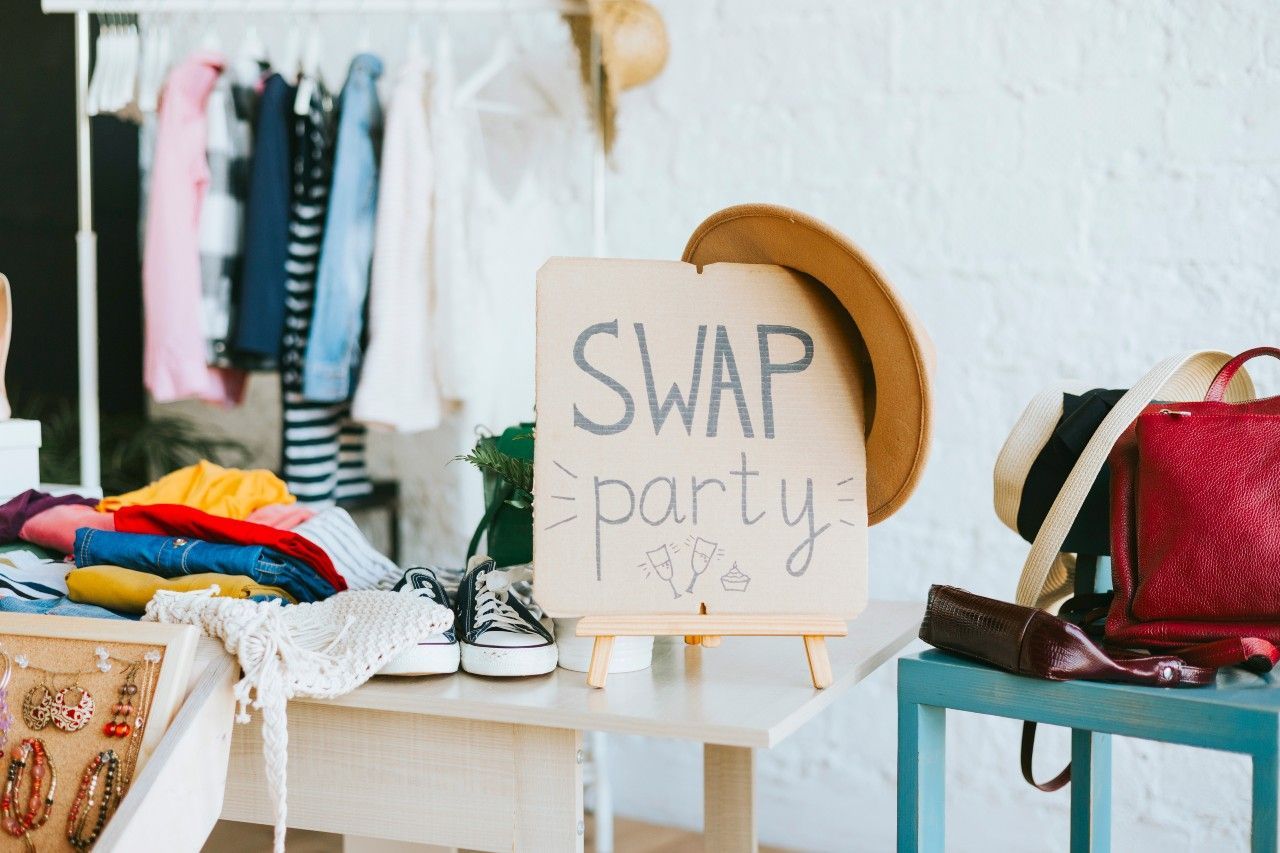
As communities and individuals, we need to reduce our impact on the planet, which can feel quite daunting. But being more sustainable doesn’t need to be a huge life overhaul.
We asked our community to share their easiest top tips. Here are 52 little swaps you can make to be more sustainable, suggested by people just like you. Why not aim for one swap a week?
Food, cooking and shopping
There are lots of simple changes you can make in the kitchen to be more sustainable.
- Save your squeezed citrus fruit skins in the freezer. You can use them for ice cubes in cold drinks, blend them and add into cake batters or sauces, or add to hot drinks for when you have a cold. Nichola
- Other types of fruit freeze well too! Slice and freeze fruit for drinks or for popping in porridge or a smoothie. Apple, lemon, lime and orange are all great in drinks, while red and black fruits and bananas work well in porridge. Now my drinks and porridge are always that bit better! Grainne
- Switch to recycled or bamboo toilet rolls. You can get recycled toilet rolls in any supermarket, or companies such as Who Gives a Crap and Naked Sprout offer boxes of eco-friendly toilet roll delivered straight to your house! Anwen
- Save your butter wrappers in a bag in the freezer then you can use them to grease your baking tins. Nichola
- Try the smell it and taste it technique to avoid wasting food. Use your common sense and don’t take risks with food such as meat. You can pop eggs in water – if they sink, they’re good to eat. With many items, you can sniff and if it smells and tastes fine, go ahead. Tracey
- Use ground coffee and beans, not coffee pods. If you have to use coffee pods, look for ones which have a fully recyclable system in place. Jayne
7. Eat more plants when you can. That might be having one meat-free meal a week, or including one more vegetable at each of your meals. Katie
8. Use your veg scraps to make a tasty vegetable stock. Rather than putting scraps in the bin or food waste, pop them in a large ziplock bag in your freezer. Once you have enough, simmer them with some water and strain. Nichola
9. Cook once, eat twice. Save time, effort and electricity by making big batches of food which you can eat as leftovers or freeze.
10. Cook once, feed more than one household! Using just one oven and having a rota with your neighbours is a great way to avoid everyone using power at once – and has the option to be lovely and sociable. Why not cook multiple baked potatoes (easy and thrifty) or cook a big one-pot of vegetable chilli or dhal? If you’re working with your neighbours you might even find people have home-grown produce to add!
11. Cook and bake from scratch, if you’re time poor you can batch make simple things and pop them in the freezer. 800g of flour (plain or 00) mixed with two sachets of yeast (7g), a pinch of salt and sugar, 4 tbsp olive oil, and warm water to bind will make 4 generous pizza bases you can simply defrost and roll out when ready.
12. Well-planned meal prep can reduce food waste and save money! Try to write a list covering meals for the week and think about where you can cover several meals. A butternut squash can often be halved and still provide generous family meals – roast in a lovely tray bake and cut the remainder into cubes for a tasty curry. We love to save small amounts of cured meats such as chorizo to add to stews too – a little goes a long way! Oxford Food Hub
13. Potato peels can make a tasty snack. Pop them on a baking tray with a bit of oil and salt and bake until crispy!
Nichola
Around the house
Use what you have to keep your house warm and cosy, and reduce the amount you throw away with these easy tips.
14. I recently switched to a refillable toothpaste and love not using tubes anymore. There are lots of options out there, including tabs that you chew or refillable bottles. Lucy
15. Use draught excluders, rugs and curtains to keep out the cold at home. You don’t need to buy them new – you could use old rolled up towels or sheets, or even pieces of bubble wrap to fill any draughty gaps. Using the legs of old jeans and stuffing them with old fabrics is quick and they’re often the perfect length for a doorway! It’ll help to save on your heating costs too!
16. Get creative with your gift wrapping. Rather than buying new wrapping paper, use old newspapers or magazines – just pick the article on display accordingly! Failing that, brown paper is often much cheaper than other types of wrapping paper and paired with a colourful ribbon can look very stylish.
17. Don’t throw away your old sheets – you can cut them up to make napkins, hankies, wipes and dusters. Nichola
18. Save water when washing up – start with a really small amount of water in the bowl and as you rinse it gets topped up with clean water. Use eco-friendly soaps and use your dish water on the garden in summer. Lindsey
19. Collect water when you shower – you can also pop a bucket in the shower with you and use the run-off to water the garden – don’t worry about minor soap bubbles, it won’t impact the plants.
20. Swap your greaseproof paper for some silicone baking sheets – they’re easy to wipe clean and use again!
21. Change expensive cleaning bottles and solutions for natural alternatives – you’d be amazed how effective white vinegar, bicarbonate of soda and lemon juice are at tackling stains and grease! Better for the planet, and for your pocket.
22. Wash your clothes at a colder temperature – 30 degrees is fine for your everyday clothing! Colder washes also help to stop stains setting into fabric.
23. Use a laundry bag to reduce microplastic leakage in your washing machine. They don’t cost much and they stop plastic fibres washing out of your clothes and entering our rivers and oceans.
24. Make your own wax wraps – it’s easier than you think! I LOVE making my own wax wraps from old fabric remnants and the last of candles…perfect for covering food leftovers and sandwiches. Jennifer. Here’s how to make your own beeswax wraps.
25. Plastic fruit and veg trays (without holes in!) make perfect paint trays. Nichola
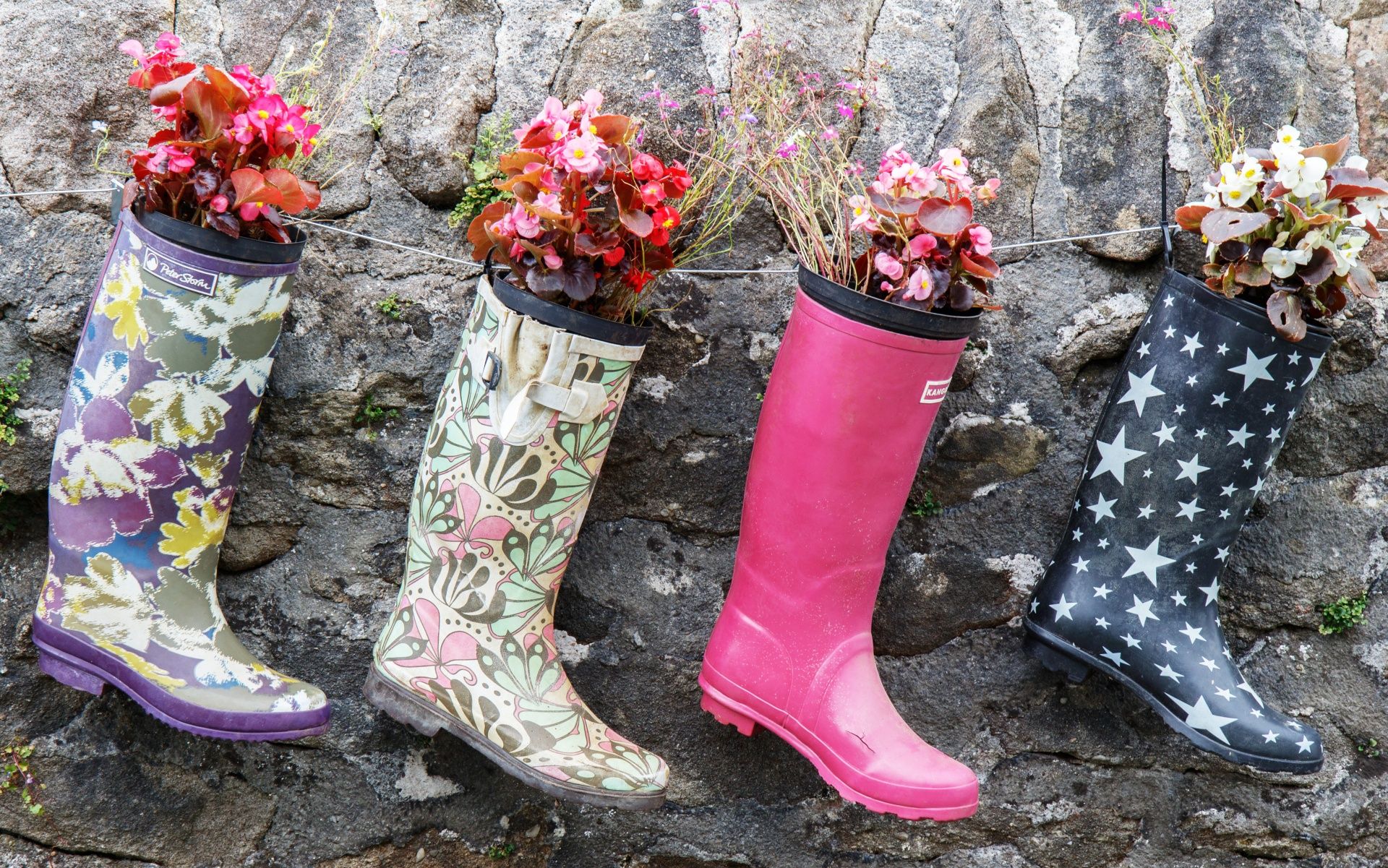
In the garden
Simple ways to use recyclable household items to help your garden bloom!
26. Use household items to help you with your gardening. Lolly sticks are great for plant labels and yoghurt pots as small plant pots. Egg trays or toilet roll insides can be used for sowing seeds. Plastic fruit and veg trays with holes make good seed trays too. Anfield Community Garden
27. Leave any excess plant pots or trays out for your neighbours to take, or donate them to a local community space. There’s no point them gathering dust in your shed!
28. Grow your own herbs, either from seeds or repot a plant from the supermarket and reap the rewards all year! Often supermarket herbs contain multiple plugs, so they split easily into a few plants. Mary-Jane
29. Pop a plant pot outside the front of your house. It’s amazing how much adding some colour can bring joy to your community, and help pollinators at the same time.
30. Use salvaged wood to make plant labels and planters. Old pallets make great shelves for small plant pots and can be painted in bold colours to brighten up a space. We do this for our local primary school. They are being taught all about sustainability and climate change & are now even growing their own vegetables and herbs! Pam
31. Cut plastic bottles in half to use as individual cloches or insert them next to the roots of thirsty plants and fill them daily. Anfield Community Garden
32. Plant a thought for pollinators, people and planet, by recycling used milk cartons and turning them into plant pots. I give them away in a random act of kindness.
Darren
Out and about
Nifty tricks to help you be more sustainable away from home.
33. Take a ‘keep cup’ for hot drinks while out and about. I’ve gifted some to family and friends – seems to have a snowball effect! Vicky
34. Travel by train or bus or walk. It also improves your physical and mental health and saves money! Elizabeth
35. Car share where you can. Is there someone in your office who lives nearby? Car sharing even once a week can make a difference, and in some cities you’ll benefit from bus lanes and closer parking.
36. Buy a reusable water bottle (or find one in a charity shop) to avoid buying bottled water. Mary-Jane
Buying and selling
Save money and avoid contributing to landfill with these top tips.
37. Look on Vinted or another resell shop before going out to buy new! This works especially well when you know the item you want, so if you always buy the same pair of jeans or staple top, you can search for it directly! Katie
38. Use your local library. Libraries are amazing community hubs and many are struggling with funding cuts. You may be surprised by how much they offer – printing, social spaces, audiobooks and much more. They’re not just for books!
39. Prioritise time and experiences with family and friends over buying items. Could you gift someone a day out or another experience rather than something physical?
40. Donate any unwanted clothes to the charity shops or sell them on Vinted to go to someone who will love them! Laura
41. Ask around before buying new. Need a new lawnmower, or power drill? Unless you’re going to use it all the time, it’s worth asking your friends and neighbours if they have one you can borrow. Make sure to offer what you have in return!
42. Shop surplus first! Fridges and larders, charity shops, second hand shops, Facebook Marketplace, eBay… Keep those items in circulation! Cherwell Collective
43. Look for your local Baby & Children’s Bank (often at schools, family centres or other community hubs). They will often have pre-loved toys, equipment and other useful items available for you to borrow and give back when your baby has grown out of them. Spark Baby and Children’s Bank.
44. Use your local repair cafe if you have an item that’s broken. It’s amazing how many items can be fixed cheaply and simply with the right know-how! Spark Baby and Children’s bank.
45. If you’ve got a DIY project planned, see if your community has a local lending scheme for tools or other materials. Some areas have community initiatives repurposing excess materials from trade sites (such as Rebuild CIC). Often DIY stores like B&Q and Wickes have an area of excess wood that you can take for a small donation. Rebuild CIC
46. Swap what you have for what you need. Have an abundance of homegrown mint or far too much veg for you to use? Offer it to your community or your neighbours and see what they can offer in return. Vicky
47. Refill bottles and jars from a local zero waste shop like Pack It In – Zero Waste Living in Worcester. Sarah
48. Having had to replace three phone chargers in as many months, I recently got an ethically sourced and life-guaranteed phone charger.
Lucy
Advocate with your actions
At the Eden Project we say there’s power in your wallet. By choosing where to bank and ensuring your pensions are held in ethical, environmentally-conscious funds, we can make a powerful change through our daily actions.
49. Bank with a greener bank. The money you have in the bank is used to fund projects worldwide, and you can choose to make sure your money is supporting causes you believe in. Look at Bank Green to find out more about which banks to support and which to avoid.
50. Unsubscribe from emails you don’t want to receive. This one is super simple, but can have a surprising impact. Every email has carbon emissions of 0.03g (going up to 0.5g if there’s an attachment). It doesn’t sound like much, but that adds up very quickly. Unsubscribing from emails you’re not interested helps clear your inbox (and your head) while reducing emissions at the same time! The search engine Ecosia is also free and helps plant trees when you search!
51. Learn what more you can do to have an impact. At the Eden Project, we have lots of advice on how to take action to combat the climate emergency, from choosing what to eat to thinking about renewable energy. Act now.
52. Opt in to hear about UK conservation efforts and how you can help. Our friends at WWF do amazing work to protect wildlife and nature – they’re a great place to start. Find out more
There’s still time to hold a Big Lunch
Our pack is still available and it’s full of handy downloadable resources and exclusive content to help you plan and host your Big Lunch.
We can’t wait to see where your Big Lunch might take you!
